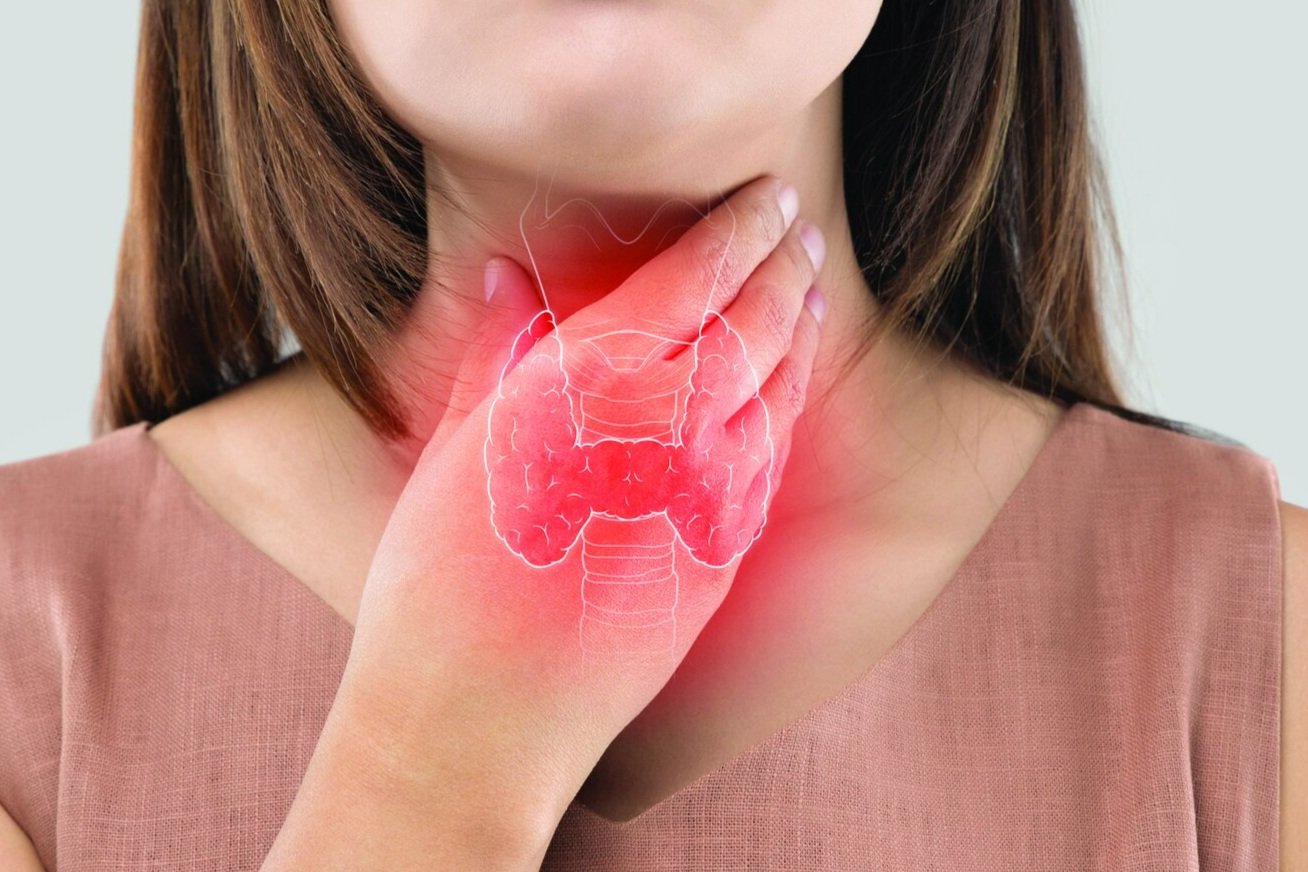
HOW TO IMPROVE THYROID HEALTH
June 06, 2023
Are you aware that the thyroid is a butterfly shaped gland located in your neck just below the Adam’s apple? It is a small but mighty organ that plays a critical role in regulating a wide range of physiological processes. Think of it as your own personal thermostat, responsible for regulating your body temperature, hair growth, nail growth, skin elasticity, heart rate, blood pressure, food and energy metabolism. When your thyroid requires support, you may experience a whole host of symptoms, from feeling down in the dumps to experiencing hair loss and dry skin.
One important thyroid marker that is used by many practitioners is Thyroid Stimulating Hormone (TSH). TSH is actually made in the pituitary gland, which is located at the base of the brain, not in the thyroid. While TSH levels can indicate if the thyroid is under or over-functioning, it’s important to note that there are other hormones to consider when investigating thyroid health. One of the most common reasons TSH is within normal range but many do not feel normal is because the reference ranges are only looking for dangerously high TSH or dangerously low TSH.
So, if you would like to have a deeper understanding it is important to know that TSH plays a crucial role in stimulating the thyroid to produce T3 (Triiodothyronine) and T4 (Levothyroxine). T4 is actually inactive which means it needs to be converted to the active thyroid hormone T3. Active T3 is very important as it is responsible for regulating all cells in the body with the help of vitamins such as iron. However, factors like gastrointestinal health, intestinal bacteria and liver function also influence this conversion process. In addition, what can make things a little more complicated is the presence of reverse T3, a metabolically inactive form of T3. This can compete with active T3, therefore it is important to consider other thyroid hormones especially when TSH levels are within normal range but we still continue to have symptoms.
Another factor to consider with thyroid health is stress. Stress can significantly affect thyroid health by impacting the adrenal glands by elevating a hormone called cortisol. Cortisol can cause a decrease in active T3 and increase reverse T3. The adrenal system impacts thyroid hormones via the glands on the HPA Axis. The HPA Axis is key to comprehending the complex interplay between stress and thyroid function. The HPA Axis encompasses:
H - Hypothalamus
P - Pituitary gland
A - Adrenal glands
The hypothalamus and pituitary gland operate closely with the thyroid and the adrenal system regulates our response to stress.
Symptoms such as poor concentration, brain fog, anxiety, poor sleep, mood swings and constipation indicate a need for support for the HPA Axis and a potential onset of thyroid or metabolic dysfunction.
Long term chronic stress and adrenal dysfunction overtime can contribute to the dysregulation of the immune system. This is when the body can potentially produce antibodies that attack the thyroid cells causing either graves or Hashimoto's disease. Other factors that can predispose us to autoimmunity include genes, viruses, damage to the gut lining, known as leaky gut and unbalanced gut bacteria, known as dysbiosis.
So, the good news is that we can give our thyroid some love by nourishing it with the right nutrients, diet and by managing stress. Implementing foods rich in iodine to encourage production of T4, such as kale, kelp, edible seaweed, dairy, seafood and iodised salt. Vitamin A supports T4 production and is found in sweet potatoes, spinach, carrots, broccoli, bell peppers, pumpkin, kale, cantaloupe and mangoes. Iron is essential for normal thyroid function and can be obtained from sources such as spirulina, red meat, quinoa, pumpkin seeds, cashews, leafy green vegetables, dried apricots. Vitamin C can help your body absorb iron and support adrenal health. Selenium found in Brazil nuts sunflower seeds, turkey, chicken, beef, fish, broccoli and oatmeal, is crucial for producing thyroid hormones and contributing to antioxidant defense in the thyroid. Zinc is found in pumpkin seeds, cashews, eggs, red meat, chicken breast, oysters, legumes and almonds is required to convert T4 to active T3.
Additionally, herbs like Rhodiola can assist with mild to moderate stress, adrenal fatigue and mood instability, while methylated B vitamins will support optimal liver detoxification and are much more bioavailable for absorption. Methods to reduce stress in our daily lives can include yoga, meditation, taking a walk out in nature or simply taking some time to breathe deeply.
Gastrointestinal health and potential sources of environmental toxins such as lead and cadmium toxicity should be considered. These toxins can be found in canned foods, old paint, leaded petrol and exhaust fumes, cigarette smoke and old galvanised pipes. Therefore, it is recommended to avoid them when possible.
If you are experiencing symptoms that just won’t go away be aware that TSH is only one of many markers that can be tested and it may be time to speak to a healthcare professional who can help you navigate your thyroid health journey.
By Bianca Costanzo - Bachelor of Health Science - Naturopathy & Bachelor of Nursing
First seen in the Seasonal Magazine: Winter 2023
Back to MO Blog page

